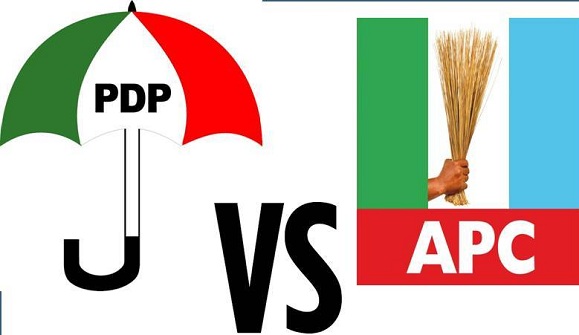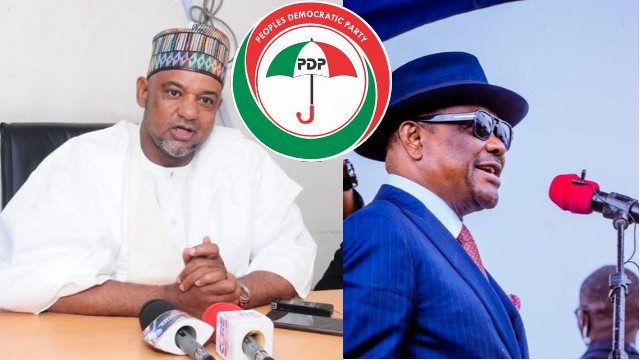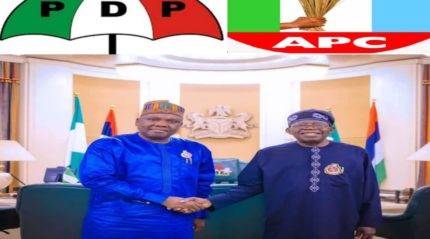Daniel Bwala, a prominent political figure, declared his unwavering commitment to supporting the administration of President Bola Tinubu. This announcement came after a closed-door meeting between Bwala and the President at the Aso Rock Villa, Abuja. Bwala made it clear that he has no reservations about his dedication to playing a significant role in bolstering President Tinubu’s leadership.
During the press briefing, Daniel Bwala conveyed his commitment to President Tinubu, stating, “I told him today, I am committing to play my part to support your administration, and I have no apologies to anybody.” This proclamation indicates a strong alliance forming between the two political figures, raising questions about the potential impact on the political landscape. Bwala’s decision to openly align himself with President Tinubu’s administration adds a new dimension to the political discourse, as observers speculate on the possible implications for both the ruling party and the opposition. The level of transparency in Bwala’s expression of support hints at a strategic move, leaving room for further analysis of the evolving political dynamics.
Daniel Bwala Contemplating Defection to APC
In a noteworthy revelation, Bwala did not shy away from addressing the possibility of defecting to the All Progressives Congress (APC) in order to support President Tinubu. “APC is a party. President Bola Tinubu is my motivation; if supporting him will take me to APC, so be it,” Bwala affirmed when questioned about his potential defection. This bold statement raises questions about the potential realignment of political forces and the impact on the current party dynamics.
The contemplation of defection adds an intriguing layer to Bwala’s pledge of support. As the political landscape undergoes shifts, Bwala’s willingness to embrace a new party for the sake of aligning with President Tinubu raises speculation about the evolving alliances and the potential ripple effects on the nation’s political scenario.
Reaction from the Public and Political Circles
Bwala’s announcement has sparked varied reactions from both the public and political circles.
Supporters of President Tinubu applaud Daniel Bwala’s commitment, viewing it as a positive development that could strengthen the President’s base. On the other hand, critics question the sincerity of Bwala’s motives, expressing skepticism about the sudden allegiance and the potential impact on the political landscape. Political analysts are closely monitoring the unfolding events, attempting to decipher the strategic implications of Bwala’s announcement. The public’s reaction, coupled with the responses from other political figures, will undoubtedly shape the narrative surrounding this unexpected alliance and its potential consequences.

Historical Context of Political Alliances
To understand the significance of Daniel Bwala’s commitment and potential defection, it is crucial to delve into the historical context of political alliances in Nigeria. Nigeria’s political landscape has witnessed numerous instances of high-profile defections and realignments over the years. Examining the historical patterns provides valuable insights into the motivations behind such moves and the impact on the broader political spectrum.
The historical context serves as a backdrop to assess whether Bwala’s decision aligns with established patterns or represents a unique development in the country’s political history. Understanding the historical context is essential for observers and analysts seeking to gauge the potential ramifications of this newfound political alliance.
Potential Ramifications for All Progressives Congress (APC)
Daniel Bwala’s contemplation of defecting to the APC raises questions about the potential ramifications for the ruling party. If Bwala follows through with his decision to join the APC, it could bolster the party’s strength, bringing in a figure with influence and political clout. This could potentially reshape the internal dynamics of the APC and influence its strategic positioning in the lead-up to upcoming elections.

On the flip side, some within the APC may view Bwala’s potential defection with caution, considering the complexities of managing diverse interests within the party. The internal reactions within the APC will be closely observed as the party navigates the implications of this high-profile political alignment.
Closing Thoughts on the Political Landscape
As the dust settles on Daniel Bwala’s announcement, the political landscape in Nigeria stands at a crossroads. The evolving dynamics underscore the fluid nature of politics, where alliances and allegiances can shift rapidly. Bwala’s commitment to President Tinubu and the potential defection to the APC contribute to the ongoing narrative of political realignment, prompting stakeholders to reassess their strategies and positions.
In the coming weeks and months, the unfolding events will likely shape the trajectory of Nigerian politics, influencing electoral strategies, party dynamics, and the broader political discourse. As observers and citizens alike await further developments, the ramifications of Daniel Bwala’s announcement remain a focal point of discussion, with implications extending beyond individual allegiances to the overall political landscape.
Table of Contents
Discover more from OGM News NG
Subscribe to get the latest posts sent to your email.














